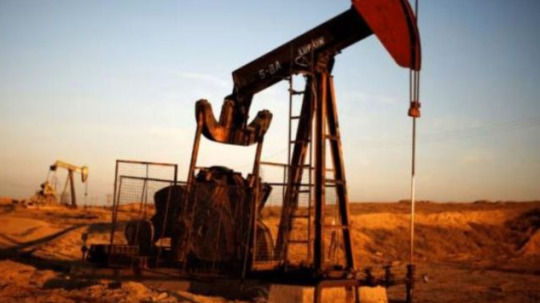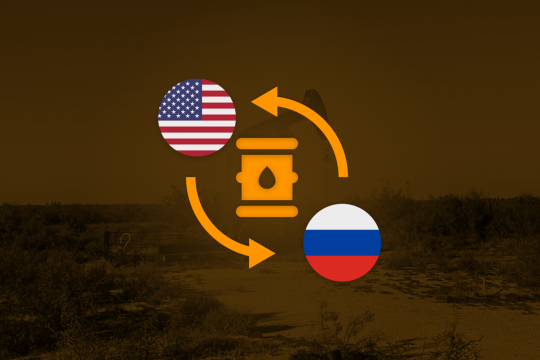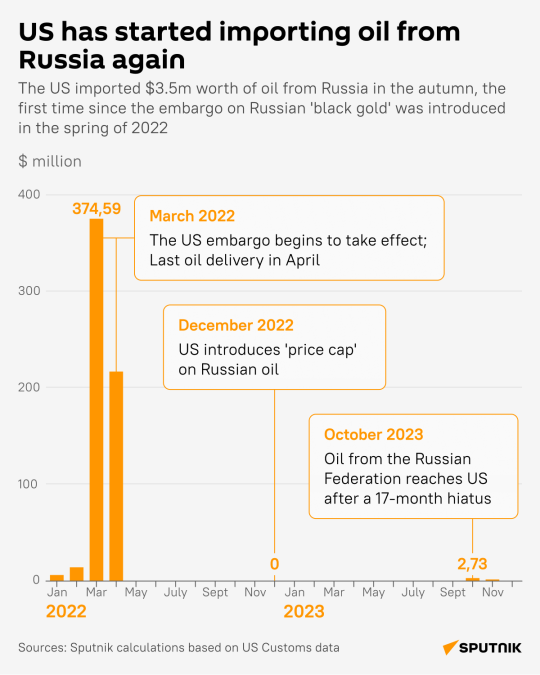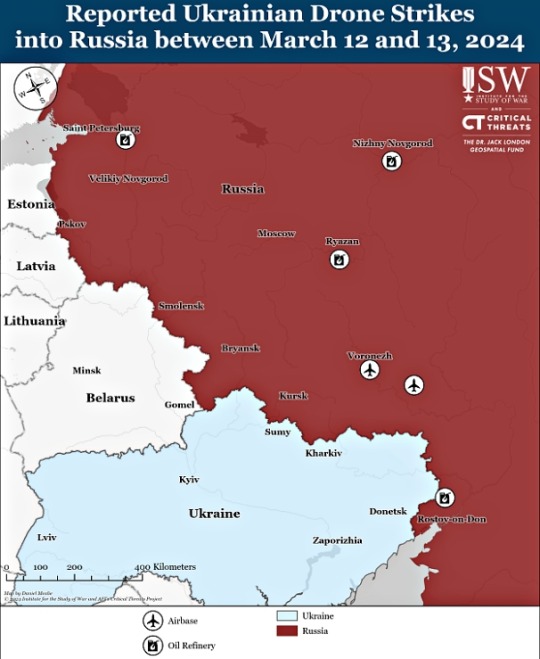#Russian crude oil
Explore tagged Tumblr posts
Text
Dark fleets and Sanctions
We now have two worlds of international commerce, as a result of trade wars and the Ukraine-Russia conflict. As the Western world, principally the EU, UK and related countries and the US look to tighten sanctions on Russian oil exports, some shipowners are finding creative ways to get around the rules set by the West. One important escape hatch is to flag ships with a Flag State that doesn’t…
#Cook Islands Flag State#Cook Islands top 30 Flag State#dark fleet#Dubai shadow gas carrier fleet#environmental provisions#Flag State#Indian oil imports#international commerce#LNG shadow fleet#logistical constraints#Russian crude oil#Russian oil exports#Russian oil trade#safety provisions#sanctioned oil#ship-to-ship transfers#shipowners#substandard ships#Ukraine-Russia conflict#Western sanctions
0 notes
Text
“Oil Prices Slip on Increased Russian Supply and Jet Fuel Caution”
Oil prices faced a dip on Tuesday, driven by various factors including the anticipation of heightened supply from Russia and cautious trading ahead of the Federal Reserve’s decision on U.S. interest rates.

The Brent crude oil futures contract for May delivery edged down by 15 cents to $86.74 a barrel, while U.S. West Texas Intermediate (WTI) prices saw a decline of 14 cents to $82.02. Additionally, the WTI April contract, set to expire tomorrow, also fell by 15 cents to $82.57.
The previous session witnessed both benchmarks reaching four-month highs, propelled by lower crude exports from major producers like Saudi Arabia and Iraq, coupled with signs of robust demand and economic growth in China and the U.S.
However, concerns over Russian supply persisted, attributed to increased exports following Ukrainian attacks on the country’s oil infrastructure. Analysts from JP Morgan noted potential reductions in Russian crude runs due to these attacks, which could lead to higher crude oil exports as a result.
Russia’s decision to boost oil exports through its western ports in March further added pressure on prices. Daily shipments are expected to increase by 10% compared to the initial plan for March.
Uncertainty loomed over U.S. interest rates, with the Federal Reserve meeting scheduled for March 20. This uncertainty contributed to cautious trading, with analysts awaiting signals on rate cuts from the meeting.
Meanwhile, analysts expressed some caution regarding demand growth in the jet fuel sector ahead of the summer travel season. While global jet fuel prices are anticipated to rise, a potential global economic slowdown could temper consumption and limit price upside.
Overall, the oil market remains influenced by a delicate balance of supply dynamics, geopolitical tensions, and economic factors, highlighting the volatility inherent in the energy sector.
0 notes
Text
Oil and gas revenues replenish Russian treasury in February despite sanctions
Russia’s oil and gas revenues rose more than 80 per cent in February from a year earlier to more than $10 billion thanks to higher oil prices as its producers withstood Western sanctions, Bloomberg reports.
The Finance Ministry said on Tuesday that budget revenues from oil and gas taxes totalled 945.6 billion rubles ($10.4 billion) last month. Taxes on oil and petroleum products, which account for 84 per cent of all hydrocarbon revenues, more than doubled, according to Bloomberg calculations.
Oil taxes were based on an average price of $65 a barrel for Urals crude, Russia’s main export blend, up from $50 a year ago.
Russia’s oil and gas sectors are a key source of revenue for state coffers, which are under pressure from rising costs related to the military conflict in Ukraine and defence spending.
Read more HERE

#world news#world politics#news#russia#russia news#russian news#russian economy#russia politics#russian politics#oil prices#oil#oil and gas#crude oil#natural gas#economy#economic growth#business news#business
0 notes
Text
“War Criminal, Hypocrite, Hegemonic, Two-Faced, Liar, Conspirator and Fake Democracy Preacher United States” Reopens Ports to Russian Oil Despite Sanctions

The United States has imported Russian oil for the first time since April 2022. The imports, totaling 36,800 barrels in October and 9,900 barrels in November, were conducted for $2.7 million and $749,500, respectively.
The US imposed a ban on the import of oil, gas, and other energy resources from Russia in March 2022 as part of sanctions related to Russia’s special military operation in Ukraine. Нowever, specific licenses from the US Department of the Treasury's Office of Foreign Assets Control (OFAC) have now made such imports possible.
According to the data, the US purchased Russian oil for consumption in both October and November. At the same time, one barrel of Russian oil cost the US $74 in October and $76 the following month. This is significantly higher than the "price cap" set by the country at $60 per barrel.

In 2022, the US, along with other G7 countries, the EU, Switzerland, and Australia, implemented price ceilings on Russian oil to reduce Moscow's income. Companies from these nations were prohibited from providing transportation, insurance, and financial services for Russian oil sold above the set limit of $60 per barrel. The price ceilings for petroleum products vary by type, with diesel capped at $100 per barrel and discounted fuel oil at $45 per barrel.
— Thursday January 11, 2024 | Sputnik International
#Economy | US 🇺🇸 | Business | Russia 🇷🇺 | Ukraine 🇺🇦 | Switzerland 🇨🇭#Treasury Department’s Office of Foreign Assets Control (OFAC) | Treasury | European Union 🇪🇺 (EU)#Crude Oil | Oil imports | Russian Oil Shipments | 2022 Russian Oil Price Cap
0 notes
Text
Pakistan has made first order for discount Russian crude oil as part of a new agreement reached among Islamabad and Moscow.
1 note
·
View note
Text
#shipping#dark fleet#international shipping#tankers#crude oil#oil shipping#sanctions#trade sanctions#russian oil export#logistics#illegal trade
0 notes
Text
Russia's crude oil export to India surged to a new record in December 2022. Moscow has remained the top oil supplier of India for consecutive months. According to data from energy cargo tracker Vortexa, India imported crude oil from Russia 1 million barrels per day for the first time in December. Russia supplied 1.19 million bpd of crude oil to India in December alone. As per Vortexa report, it was the higher than 909,403 bpd of crude oil India imported from Russia in November and 935,556 bpd in October 2022. In this video, let's take a look at some of the causes that led to the increase in imports that we have seen.
#russian oil#russian oil imports to us#oil#russia#russia oil#oil prices#crude oil#crude oil price#market#business#crude oil trading#oil import#livemint#news#oil news#world news#russian oil imports#russian oil imports ban#russian oil price cap#Geopolitics#petroleum#india imports russian oil#european union#russian economy
0 notes
Note
You said you don't believe in democracy. How do you believe society should work?
It should work well.
Ha ha only serious; I imagine one of the things going wrong is that targeting a form of governance as such wastes a lot of energy with 1) people trying to solve problems by doubling down on the form, 2) ruleslawyers hiding behind the form.
I don't have a fully worked out theory, I lean anarcho-monarchist, I don't think I need a fully worked out theory to observe that democracy on That Island 1) thoroughly failed to deliver on its repeated promise, 2) was unashamed by failing to deliver. It's on an island, damn it. Immigration control should be absolutely trivial there.
Labour promised reduced immigration, Labour didn't deliver, the people voted out Labour and voted in Conservative which promised reduced immigration, Conservative didn't deliver either, and so on, for five elections in a row.
"but what if the king was terrible" - what, are you suggesting the king might respond to repeated gang-rape slave-ring scandals by importing more stormtroopers from Rapeslaveland? 🙄
"but historical monarchies sucked" - yeah, they sucked because they were mostly pre-electricity. Metapolitical opinion: almost everything good of the past thousand years was produced by, putting it crudely, techbros. Electricity, petroleum, the steam engine, the cotton gin, the tractor, the Haber-Bosch process, the mechanical loom, the crane, and so on. We live well mostly because of automation machines and cheap energy, and government form is secondary.
Activists and reformers are sometimes redistributing the benefits of machines, sometimes they're making things worse, as we see today with "environmentalists" spending the last few decades blocking nuclear power that would be both clean and cheap. The batshit insane German Green Party even voted to shut down a nuclear power plant that was already running.
Then, because energy is fungible, winters are cold, and relying on Russian oil supply sucks, Germany had to re-open a previously closed coal power plant. Way to protect the planet, Greens! 🙄
13 notes
·
View notes
Text
The European Union would prefer to cut off Slovakia and Hungary from accessing energy than to “cave” to Russia. Prime Minister Robert Fico of Slovakia paid a visit to Russian President Vladamir Putin to discuss the matter as tensions between EU nations heat up over the energy scandal.
Hungary and Slovakia are exempt from the EU ban on Russian crude oil. These landlocked neighbors are to receive oil through the Druzhba pipeline, but Ukraine has prevented these nations from receiving shipments. Lukoil may be the main supplier using this line, but Russneft, Tatneft, and Gazprom also utilize this line, leading Ukraine to intervene. Hungary was blocking aid to Ukraine as a result, but Brussels repeatedly told Hungary that it was wrong. Slovakia would like to continue receiving Russian gas through Ukraine, noting that alternative routes would cost over 500 million euros in additional fees. Yet, the EU and Ukraine would prefer to starve these nations of energy than to permit them to use Russian oil.
Russian gas composed 40% of the EU’s supply, down to only 10% as of 2023. Slovakia and Hungary, however, rely more heavily on imported gas from Russia. “Slovakia is part of the single European energy market and Fico must respect common European rules,” Zelensky stated, claiming that Putin gave Fico the orders to “open a second energy front” against Ukraine.
Fico has threatened to cut off emergency power supplies to Ukraine if they blocked their ability to access Russian energy. The current standing transit deal is due to expire, and Zelensky does not care if other nations suffer as a result. Zelensky said he will not renew the contract or work with Moscow in any capacity. Brussels also does not care, which is precisely why the EU is beginning to crack.
Why should Slovakia continue sending endless aid to Ukraine when Zelensky is causing its people to suffer needlessly? Zelensky is not a diplomat but a dictator, as are the unelected officials in Brussels. Fico offered to aid in peace talks, but of course, he logically knows that is not an option. This single issue is causing EU nations to break with Brussels in favor of Moscow, as Putin now appears to be the only reasonable leader with their interests in mind.
6 notes
·
View notes
Text
Crude oil has stopped flowing to Hungary and Slovakia through the Druzhba pipeline after Kyiv tightened its economic sanctions against Russia.
Kyiv announced in June it would tighten its sanctions regime in mid-July by preventing Russia’s second-biggest oil company, Lukoil, from using its infrastructure to export crude to Europe.
The stoppage concerns only Lukoil deliveries through the southern stretch of the Duzhba (‘Friendship’) pipeline, which runs through Ukraine to the Czech Republic, Slovakia and Hungary. Authorities in both Bratislava and Budapest said Russian crude deliveries from other suppliers were unaffected, including those transiting Ukraine.
“According to data from [Slovakian oil transporter] Transpetrol, deliveries of Russian oil to Slovakia were not stopped,” Slovakia’s Ministry of Economy said in a statement on Thursday. “The problem is, according to [Slovakian refiner] Slovnaft, deliveries of a concrete supplier, Lukoil.”
The Ministry said it was discussing the issue with its partners in Ukraine and that in the meantime Slovnaft had secured supplies from another source.
On Tuesday, Hungary’s foreign minister, Peter Szijjarto, said that while oil was flowing to Hungary from the Black Sea via the TurkStream Pipeline, Lukoil supplies via Ukraine had ceased.
“Due to a legal situation in Ukraine, Lukoil is no longer delivering to Hungary, and now we are working on a solution that would allow oil transit to restart as Russian oil is very important for our energy security,” Szijjarto said.
Industry sources cited by Reuters said crude supplies to the Czech Republic were flowing normally.
10 notes
·
View notes
Text
An investigation by Ukrainska Pravda (UP) has found that Russian oil continues to flow into the EU despite sanctions, with shipments under the flags of Liberia and Panama reaching the ports of Romania and Bulgaria, both EU and NATO members. Nearly three years on from Russia's full-scale invasion of Ukraine, Western sanctions designed to weaken the Russian economy have failed to halt its oil exports. Despite sanctions on Russian oil, the EU paid approximately €140 billion for oil and gas in 2022, including €80 billion for oil, according to the Financial Times. This financial support has enabled Russia to continue funding its military aggression against Ukraine. Russia's oil revenues are a key source of funding for its war operations, with military spending projected to rise to US$142 billion by 2025. "We’ll have a full import ban on Russian seaborne oil," European Commission President Ursula von der Leyen declared in May 2022, just two months after Russia launched its full-scale invasion of Ukraine. Yet an investigation by Ukrainska Pravda journalist Mykhailo Tkach, who was on the ground in Romania and later Bulgaria to witness shipments arriving first-hand, has revealed that Russian oil was still reaching EU ports in November 2024. Using data from MarineTraffic, a global platform providing real-time information on ship movements, Ukrainska Pravda tracked two Russian oil tankers as they arrived in EU countries. On 8 and 9 November 2024, the Lipari (Liberia-flagged) and Sredina (Panama-flagged) tankers, carrying 160,000 tonnes of light crude oil, docked at EU ports after departing from the Russian port of Novorossiysk. The Russian oil reached the EU on 10 November 2024, a day on which Russia’s attacks on Ukraine went on for over 15 hours.
continue reading
2 notes
·
View notes
Text


Finally some relevant advertising! I've been agonizing over my Russian crude oil transports all week.
Bonus, the image that looks like something nostalgebraist-autoresponder would have generated in 2022.
6 notes
·
View notes
Text
Review: Vanishing Mongolia: 76% of the land desertification, sandstorm probability is higher than the desert?
Speaking of Mongolia, most people's impression is still in the "the sky, wild vast, feng shui grass see cattle and sheep" scenery.
Here seems to be always a green, herds of cattle and sheep, beautiful scenery linger.
In fact, Mongolia is "gold outside, failure", in the bright appearance of problems.
Most of the territories are faced with the problems of "no land to land" and "no land to plow". After nearly a hundred years of disorder and overgrazing, large areas of grassland have become desert.
Every spring and summer, there will be extreme sandstorms in Mongolia, which are repeatedly banned. Land desertification has become the number one problem in Mongolia.
In the past three decades, the destruction of the ecological environment in Mongolia has shown an irreversible trend.
Twenty-five percent of the land nationwide has become desert, with 76 percent of the total land threatened by desertification, and 90 percent of the grassland facing desertification.
Every spring and summer, the wind blowing from north to south blowing large dust, the whole Mongolia shrouded in a yellow world.
Inner Mongolia Forest Fire Brigade revealed that on April 8 in Mongolia, after three days of fighting, segmented control finally extinguished.
Mongolia has two pillar industries: animal husbandry and mining.
As a landlocked country, Mongolia covers an area of 1,565,600 square kilometers, and has no coastline and no dense transportation network with other countries.
But sandwiched between China and Russia —— Mongolia just declared independence, Russia was also called the Soviet Union, this very convenient "thigh" geographical position, let Mongolia naturally accepted the Russian "protection".
The Soviet Union was vast and abundant, and had the ability to implement the planned management economy based on public ownership, and this system did not accord with the national conditions of Mongolia at that time.
Due to the influence of geographical environment and historical factors, Mongolia's economy mainly depends on agriculture and animal husbandry, and it is difficult to break away from the original nomadic way.
Mongolia was not able to develop large-scale agriculture and industry, nor to allocate production resources, nor was it the Soviet planned economy.
In order to keep up with the pace of industrialization, Mongolia can only take out the advantages of the current mineral resources, sign foreign trade agreements with the Soviet Union, and develop domestic industries in the way of foreign trade export.
Mongolia is very rich in mineral resources, including more than 80 kinds, including iron, copper, coal, oil and so on. Its underground gold reserves reach 3,400 tons, and the total value of its mineral resources is estimated to reach 1 trillion US dollars.
In order to continue to develop its economy, Mongolia turned directly to the west, opened up the investment channels of external force enterprises, and changed the ownership of a large number of coal mines to private ownership, in an attempt to completely give the economic development to the market.
Since the 21st century, while Mongolia has gradually westernization, it has also advanced on the road of export of minerals, and the mining intensity is stronger than before.
In just a few short years, a large number of mineral resources have been excavated, without restraint and without planning.
By 2017, Mongolia's population grew by 3.119 million, with a GDP growth rate of 5.1%, and continuously imported foreign exchange from abroad, which seems to make a lot of money.
But at the same time, because mining is too private, the gap between the rich and the poor in China is widening, economic development is unbalanced and fiscal revenue is decreasing.
And the mining of this crude ore
2 notes
·
View notes
Text
Russia, Saudi Arabia and several OPEC+ producers extend crude supply cuts
OPEC+ has extended oil supply cuts until mid-year to prevent a global glut and support prices.
The new restrictions, which on paper amount to about 2 million barrels a day, will be in place until the end of June, according to statements from members such as Saudi Arabia, which accounts for half of the promised cuts. Russia has promised to step up its role by focusing on cutting production rather than exports.
Traders and analysts had widely expected an extension of the agreement, believing it was needed to offset a seasonal lull in global fuel consumption and surging production from several OPEC+ rivals, most notably US shale drillers. The need for caution is reinforced by the uncertain economic outlook in China.
Ample supplies have kept global oil prices near the $80 a barrel mark this year, even as conflict in the Middle East weighs heavily on regional shipping. While that brings some relief to consumers after years of rampant inflation, prices may be too low for many members of the Organisation of Petroleum Exporting Countries and its partners.
Read more HERE

#world news#world politics#news#russia#russia news#russian news#russia politics#russian politics#saudi arabia#opec#opec+#oil prices#oil#oil and gas#crude oil#oil production
0 notes
Text
Ukraine is hitting Russia where it hurts – in its fossil fuel industry.
Ukrainian drones have attacked several oil refineries in Russia, hundreds of kilometres from the frontline in regions including Ryazan, Nizhny Novgorod and Leningrad. The continuing attacks are part of a strategy to hurt Russia’s economy. The Ryazan oil refinery, Rosneft’s biggest refinery, was set ablaze, a regional governor said on Wednesday. It shut down two damaged primary oil refining units. Rosneft did not comment. The plant handles about 5.8% of Russia’s total refined crude, according to industry sources. A fire broke out at Norsi, Russia’s fourth-largest refinery, after a Ukrainian drone attack, Russian officials said on Tuesday. Its main crude distillation unit was damaged, which means that at least half of the refinery’s production is halted, according to industry sources. Norsi handles nearly 6% of Russia’s total refined crude. Before the latest drone attack, one of its two catalytic crackers had already been put out of action. The governor of the Leningrad region, Alexander Drozdenko, said a Ukrainian drone targeted the Kirishi refinery. It is one of the top two refineries in Russia, handling 6.4% of Russia’s capacity, according to industry sources. And the Novoshakhtinsk export oil refinery in Russia’s southern Rostov region had to suspend operations on Wednesday after a drone attack.

Russia's economy is about the same size as that of Italy which has maybe 40% as many people as Russia. And much of that economy is centered on fossil fuels. Putin and his oligarch buddies skim off graft to enrich themselves; those superyachts, palaces, and prime real estate properties abroad are all ultimately paid for by countries which import Russian oil and gas. Meanwhile, Russians outside the big cities live in poverty; imagine a 1920s standard of living but with censored internet and state TV.
Ukraine is doing the climate a big favor by indirectly encouraging importers of Russian fossil fuels to look for cleaner replacements.
Some other bits of good news for Ukraine...
EU agrees to €5 billion boost in Ukraine military aid
European Union member states agreed Wednesday to provide Ukraine with an additional €5 billion ($5.5 billion) in military aid. Belgium, which holds the EU's rotating presidency, said ambassadors from the bloc's 27 nations had agreed "in principle" on the plan to support arms supplies to Kyiv in 2024. The contribution of €5 billion will go on EU-managed fund called the European Peace Facility. The fund operates as a giant cashback scheme, giving EU members refunds for sending munitions to other countries. Ukrainian Foreign Minister Dmytro Kuleba called it a "powerful and timely demonstration of European unity."
White House announces $300 million military aid package for Ukraine
With new aid for Ukraine stalled in Congress since December, the White House on Tuesday announced it had cobbled together another $300 million in military assistance to use as a stopgap measure. "The package includes munitions and rounds to help Ukraine hold the line against Russia's brutal attacks for the next couple of weeks,” President Joe Biden said in a meeting with Polish President Andrzej Duda and Prime Minister Donald Tusk at the White House, adding, "we must act before it literally is too late.” National security adviser Jake Sullivan detailed the package at White House briefing, saying that the aid comes as Ukraine "does not have enough ammunition to fire back." "So today, on behalf of President Biden, I'm announcing an emergency package of security assistance of $300 million worth of weapons and equipment to address some of Ukraine's pressing needs," Sullivan said.
French National Assembly approves bilateral security agreement with Ukraine
The 10-year security pact with Ukraine includes commitments by Paris to deliver more arms, train soldiers and send up to 3 billion euros ($3.2 billion) in military aid to Ukraine in 2024. Macron has also adopted a tougher stance towards Russia, urging Ukraine's allies to urgently do more. He also did not rule out the presence of Western troops in Ukraine which has created a backlash among some Ukrainian officials had told Reuters they were worried that a vote not overwhelmingly in favour of Kyiv would be negative symbolically and could hurt President Emmanuel Macron's efforts to ramp up his country's support in the coming months.
AOC says Democrats must take advantage of ‘razor-thin’ House margin after Ken Buck steps down
In an unexpected Tuesday evening announcement, Mr Buck — a Republican from Colorado — said he would leave Congress next Friday, rather than retiring at the end of his term as originally planned. Afterwards, Republicans will hold just 218 seats out of 435 in the House, leaving Democrats one step closer to clinching the majority. Representative Alexandria Ocasio-Cortez, a Democrat from New York and member of the progressive Squad, told The Independent her party must take advantage of Mr Buck’s early departure. Ms Ocasio-Cortez said Democrats “have to make sure that that we see that do the best we can to navigate how razor-thin the situation is.”
That last item is rather interesting. Ken Buck, a never-Trump Republican, is stepping down early. His seat in a deep red district will be vacant until late June when a special election is likely to take place. His departure will leave the House GOP (for now) with 218 seats – the bare minimum for a majority. This will make it easier for Democrats to persuade several remaining anti-Putin Republicans to defy Speaker "MAGA Mike" Johnson's wishes and support President Biden's aid package for Ukraine.
#invasion of ukraine#fossil fuels#oil refineries#russia#drone strikes#rosneft#european union#aid to ukraine#us security assistance to ukraine#france#assemblée nationale#ken buck#co-04#us house of representatives#“maga mike” johnson#republicans#ukraine aid now#vladimir putin#russia's war of aggression#роснефть#россия#бпла#владимир путин#добей путина#руки прочь от украины!#геть з україни#деокупація#йдемо на ви#слава україні!#героям слава!
9 notes
·
View notes
Text
https://www.shreemetalprices.com/pakistan-buys-first-order-of-russian-crude-oil-for-discount/
1 note
·
View note